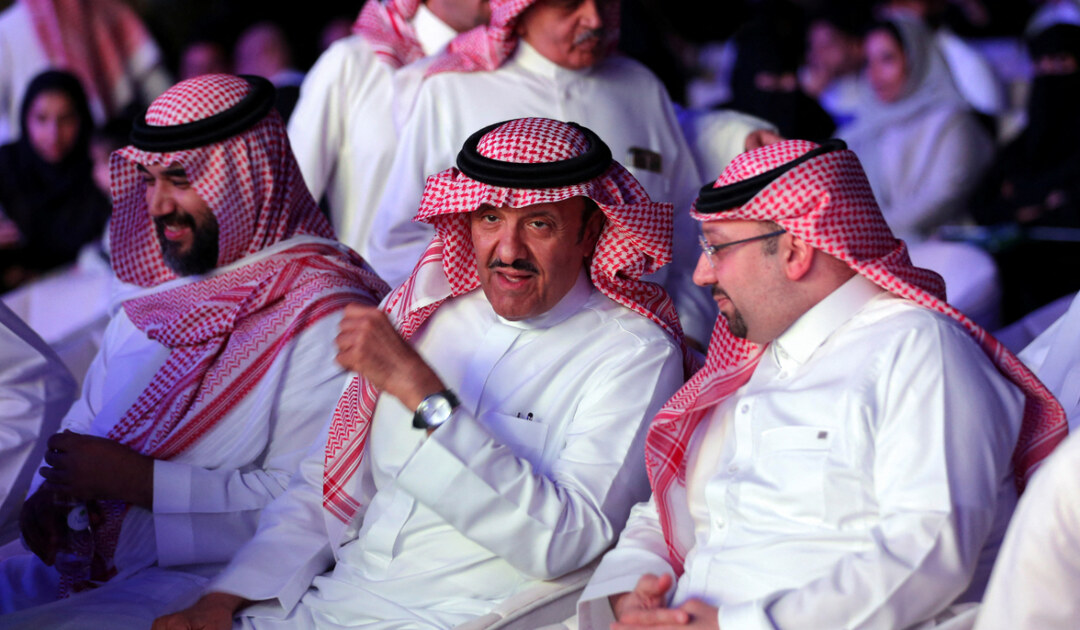In 1985, Prince Sultan bin Salman became the first Arab and Muslim astronaut, flying aboard NASA’s STS-51-G mission to deploy Arabsat-1B. Around the same time, the King Abdulaziz City for Science and Technology championed research and development for Saudi Arabia’s early satellite programs.
The Kingdom’s engagement with space is rooted in both pioneering achievements and a clear vision for future growth. This foundational work now aligns with Vision 2030, propelling the country’s ascent in the global space economy.
Saudi Arabia’s early milestones signaled a deliberate intent to harness space for economic and technological gains. Arabsat, launched in the mid-1980s, paved the way for an expanding satellite communication framework, integrating the Kingdom’s ambitions into broader global networks. These undertakings foreshadowed the wave of strategic programs currently shaping Saudi Arabia’s quest to become a central player in the space economy.
Space is rapidly emerging as a pivotal driver of economic growth and technological innovation. According to the Space Foundation, the global space economy reached $570 billion in 2023, reflecting a 7.4 percent year-over-year increase and more than double its 2009 valuation of $261.6 billion. Commercial revenues alone totaled $445 billion — or 78 percent of the overall market — while international government space spending grew by 11 percent to hit $125 billion. Projections still forecast the space economy to surpass $1 trillion by 2030, fueled by robust expansion in satellite services, space tourism, and new interplanetary ventures.
Against this backdrop, Saudi Arabia aims to invest $2 billion in satellite development, space science, and tech-focused industry to reinforce its position. The satellite market itself, currently estimated at $334.83 billion in 2024, could grow to $729.53 billion by 2034 at an 8.1 percent compound annual growth rate, underscoring lucrative opportunities for nations able to blend technical prowess with forward-looking policies. By focusing on research, capacity-building, and infrastructure, Saudi Arabia hopes to capture a meaningful slice of this surging space economy while integrating it into the Kingdom’s broader vision for diversification and innovation.
Saudi Arabia’s evolution from pioneering missions to shaping a next-generation space economy signals an enduring dedication to both innovation and responsibility.
Saudi Arabia builds on KACST’s longstanding research and development legacy through new initiatives like the Space Tech Entrepreneurship Incubation Program, which attracted SR41 billion ($10.9 billion) in investments and graduated 15 startups, and the National Semiconductor Hub focusing on technological localization. This is coupled with the opportunity of establishing innovation centers focused on space-based solutions provides a great opportunity to advance the technological growth of Saudi Arabia. These ventures support advanced satellite research, space-borne internet systems, and expanding partnerships with NASA and global collaborators, all fueling the Kingdom’s digital transformation.
Saudi Arabia intends to capture a substantial share of the exponential growth of the space economy. By allocating billions toward satellite technology, space science, and tech-focused R&D programs, the Kingdom underscores its aspiration to be a key force in this evolving sector, with projections pointing toward a remarkable $1.8 trillion by 2035, according to the World Economic Forum.
The National Satellite Data Center illustrates this determination by gathering and interpreting satellite data for security, environmental monitoring, and urban planning. In the same spirit, early space missions gave rise to everyday breakthroughs: camera sensors originally made for planetary imaging power our smartphone photography, while satellite-based navigation systems have reshaped modern mobility. Saudi Arabia’s active engagement hints at similar offshoots that might emerge from its ballooning space research, potentially spurring innovations in areas like green energy, advanced agriculture, and medical diagnostics.
Space debris remains a formidable challenge for this burgeoning industry. The European Space Agency estimates that over 36,500 objects larger than 10 cm orbit Earth , joined by millions of smaller fragments that raise the risk of collisions. Kessler Syndrome — a cascading cycle of orbital debris collisions — underscores the urgency for debris mitigation and end-of-life protocols. By prioritizing responsible decommissioning and investing in debris-clearing technologies, Saudi Arabia shows a clear commitment to protecting vital orbital pathways alongside its own economic objectives.
At the core of these ambitions lies workforce development. Saudi Arabia has long recognized that a thriving space sector depends on skilled professionals in engineering, science, and research. Through expanded STEM programs and international scholarships, the Kingdom is nurturing a new generation of innovators prepared to tackle tomorrow’s challenges.
Taken together, this story illustrates how Saudi Arabia’s space efforts have grown from a singular astronaut’s flight into a holistic blueprint for progress. As analysts project the global space economy to hit trillions in the coming decade, the Kingdom’s pursuit of advanced satellite systems, environmental stewardship, and human capital stands out. Balancing bold socio-economic targets with proactive sustainability measures, the Saudi Arabia’s evolution from pioneering missions to shaping a next-generation space economy signals an enduring dedication to both innovation and responsibility.
• Hamad S. Alshehab is a strategic advisor to NGOs focused on empowering youth and community development in Saudi Arabia. He is experienced and specialized in areas including control systems, digital transformation, entrepreneurship, innovation, investments and economics.
• Hassan M. Alzain is pursuing a master's degree in environmental management at Yale University. He led the Environmental Science, Sustainability and Policy Group at Aramco’s Environmental Protection, and is experienced in areas such as sustainability reporting, climate policy, envrionmental technology and data assurance.













